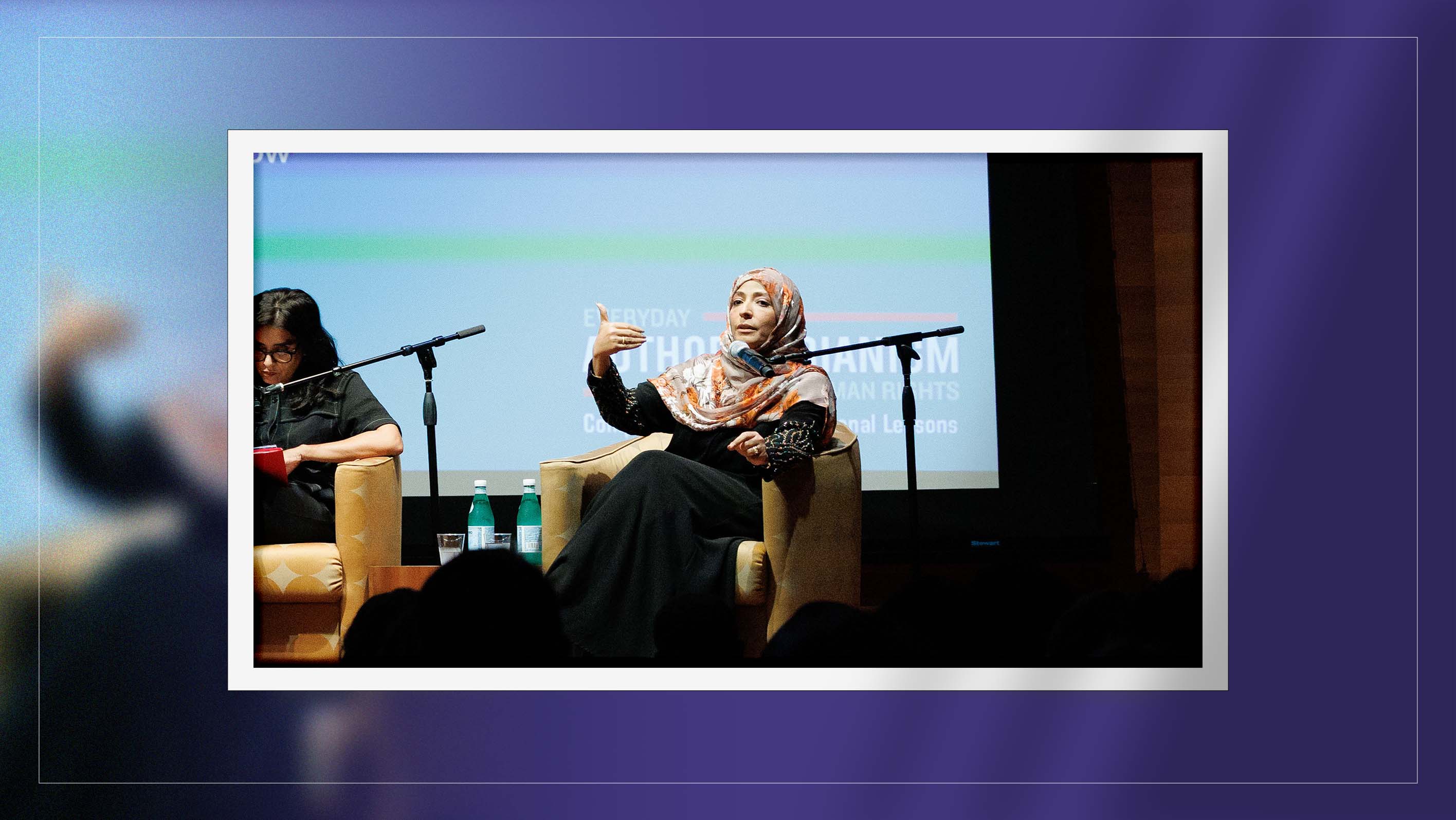Nobel Peace Laureate Tawakkol Karman delivered a powerful address at a United Nations General Assembly side event organized by the Nobel Women’s Initiative, titled “Authoritarianism and Human Rights: Comparative and Transnational Lessons.” Her speech focused on the systematic targeting of journalists in Gaza, which she described as a crime that remains “indelibly etched in the memory of humanity.”
Speaking to a distinguished audience of diplomats, human rights advocates, and civil society leaders, Karman condemned the deliberate killing of journalists who, armed only with cameras and pens, sought to document the truth and amplify the voices of victims. “Journalists have paid a devastating price for fulfilling the duty that befits any free press,” she said. “According to verified reports, nearly 250 journalists have been assassinated over the years of conflict, rendering Gaza the most dangerous place in the world for media professionals.”
Karman emphasized that these killings are not isolated incidents but part of a calculated strategy to silence independent reporting, erase evidence, and distort the narrative. “When the camera is targeted, it is not merely a life that is extinguished—it is the possibility of justice that is destroyed,” she warned.
She cited repeated attacks on media infrastructure and personnel, documented by journalistic and human rights organizations, as evidence of a systematic policy aimed at suppressing truth and enabling impunity. “In Gaza, journalists were killed because they carried the truth to the world. But truth frightens killers more than bullets,” she said.
Karman called on the international community to take urgent action to protect journalists and hold perpetrators accountable. “The blood of journalists will not silence the truth. It will amplify it,” she declared. “Our responsibility today is to ensure that truth remains stronger than bullets, and that the word remains free, no matter how fierce the repression, terror, and injustice.”
Here is the full speech:
Ladies and Gentlemen,
I stand before you today, in my name and in the name of the free conscience, to speak of a crime that remains indelibly etched in the memory of humanity: the deliberate targeting and killing of journalists in Gaza—those who carried cameras and pens to bear witness to the truth, and for that, became the victims.
Journalists have paid a devastating price for fulfilling the duty that befits any free press: they reported, documented, and conveyed the voices of victims to the world. The result has been tragic. Hundreds of journalists and media professionals have been killed over years of conflict. According to verified reports, the rate of these killings has rendered Gaza the most dangerous place in the world for journalists.
Why are journalists in Gaza being killed with such brutality and systematic intent? Why have nearly 250 journalists been assassinated to date? The answer is both clear and painful: truth unsettles the perpetrators. It exposes them to condemnation and accountability. Silencing journalists through murder is a calculated attempt to erase evidence, distort the narrative, and intimidate those who remain from reporting the reality to the world. When the camera is targeted, it is not merely a life that is extinguished—it is the possibility of justice that is destroyed, and the door to accountability is closed for victims and their families.
This targeting is not random nor isolated—it is a deliberate and systematic policy. Reports from journalistic and human rights organizations have documented repeated attacks on media infrastructure and the targeting of media professionals while performing their duties. The intended outcome of this systematic killing is forced silence, distorted information, and a pathway for criminals to escape justice.
In Gaza, journalists were killed because they carried the truth to the world. They did not bear arms—they bore cameras and pens. But truth frightens killers more than bullets, and so they sought to silence them permanently through systematic murder.
Distinguished audience,
The targeting of journalists in Gaza is not a series of random acts—it is a crime against truth, against memory, and against the people's right to know. Killing a journalist there is tantamount to killing testimony itself, and to opening the door for criminals to continue their atrocities without fear of accountability.
The consequences of the systematic killing of journalists in Gaza are grave. It is a profound loss of courageous lives that leaves an irreplaceable void. It is a deprivation of the world’s access to independent narratives of unfolding events. It is a weakening of justice and a reinforcement of the culture of impunity.
Yet the blood of journalists will not silence the truth. It will amplify it. It will insist more forcefully on pursuing the killers and defeating their criminal enterprise. Our responsibility today is to demand protection for journalists and to insist on holding their murderers accountable—so that truth remains stronger than bullets, and the word remains free, no matter how fierce the repression, terror, and injustice.
To watch full speech click here

